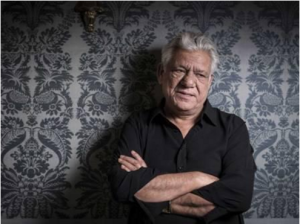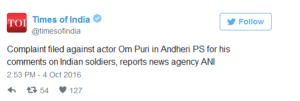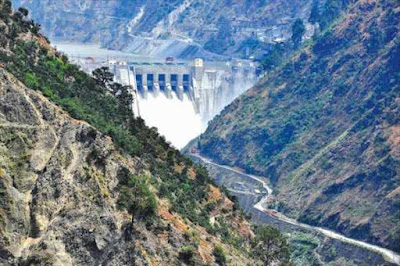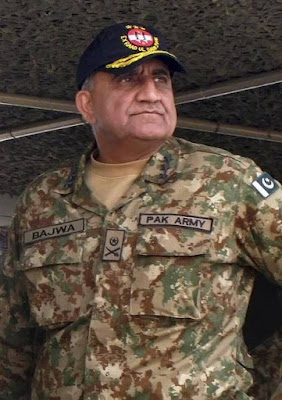‘Panamagate’ refuses to die as the New Year has begun with new bench
of the Supreme Court, which will start hearing petitions of Imran Khan
and others from Wednesday. However, the new chief justice of Pakistan,
Justice Saqib Nisar, has recused himself from the case. In all
probability, the outcome of the case will dominate the emerging
political scenario in 2017, which even otherwise is the electioneering
year and we will witness lots of political happenings in the next 12
months.
Both, the ruling Pakistan Muslim League-N (PML-N) and the
main opposition party, Pakistan Tehreek-e-Insaf (PTI) are confident of
winning the case, but it is good that both will accept the judgement, at
least this is what they say right now.
However, Imran Khan was
disappointed when the previous bench, headed by former chief justice,
Anwar Zaheer Jamali, adjourned the hearing till the first week of
January, and said, the new bench would hear the petitions.
When
the senior most judge, Justice Saqib Nisar, took the oath, he ended all
kinds of speculations over 'Panama case’, by keeping himself out of the
bench. Whether elections will be held as per schedule in 2018 or
earlier, the battle for Islamabad will be between the ruling PML-N and
opposition PTI, the SC verdict on Panama will also determine the
political career of both Prime Minister Nawaz Sharif, his daughter
Maryam Nawaz and also of Imran Khan.
Imran, who had lost his
campaign over election rigging in 2013 after the Judicial Commission
findings in 2015, wants to win 'Panama case’, as his chances of victory
in the next general elections has a lot to do with the court verdict.
Defeat
in this case will further reduce his chances of winning the upcoming
elections, but a victory could give a new lease of life to his party and
he could go into polls with high spirits. On the other hand, stakes are
also high in the other camp. There’s a lot more than the political
career of PM Sharif which is under threat.
Any adverse ruling
would seriously dent his political legacy, as he often sees his daughter
taking over power from him in future. But, the PML-N is ready to take
the challenge, as the political battle between the PML and the PTI has
now entered the crucial phase and political temperature has also soared.
The
kind of language being used by both sides during TV talk shows and in
public meetings also reflects rising tensions. The battle for Punjab is
the battle for Islamabad. The PML-N has been ruling the province since
1985 and has retired General Pervez Musharraf not staged a coup on Oct
12, 1999, Sharifs could have enjoyed an uninterrupted rule. Musharraf's
era had created a split in the party and Chaudhrys of Gujrat and
Moonis Elahi sided with the former president as an alley.
However,
for the first time, the Muslim League emerged as an opposition party,
unlike in the past when leaguers had the reputation of changing
loyalties. But many who changed their loyalties during Musharraf's
period are now part of PML-N, something which went against Shairfs’
post-Musharraf politics.
Imran Khan, who also supported Musharraf
from 1999 to 2002, not only regretted his association with him but is
also seriously challenging Sharifs’ political supremacy now. Thus, in
2017, the battlefield will be Lahore, which since 1970s had witnessed
major political transformation. Once it was the stronghold of Pakistan
People’s Party (PPP), under Zulfikar Ali Bhutto. It is the city where
three major political parties, PPP, PML and PTI were founded.
So,
the city will witness one of the most crucial political battles in the
next elections between the 'might of Sharifs’, and the rise of Imran.
Some PML-N leaders conceded that for the first time the party faced
serious political challenge in 2013 elections in Lahore, and the PTI did
jolt the party. "In a way it was good for the party, as competition
always helps you correct your mistakes, said a PML-N leader on condition
of anonymity, as he criticised some of the party leaders.
Now
where would stand the other mainstream political parties in this
'two-party battle’? The PTI has practically replaced the PPP in Punjab,
and the latter may witness some important party leaders leaving it
before the elections.
The decision of former president, Asif Ali
Zardari, to take the centre-stage is something which had been opposed by
many leaders of the PPP Punjab. They had even suggested to Mr Zardari
to either stay away from the party or become the party's 'Rahbar’
(patron).
The only option for the PPP is the post-election
scenario, as they are unlikely to stage a big comeback in near future.
In 2017, the party would try to regain some of its lost glory in
southern Punjab and sweep in Sindh including improving its position in
Karachi.
While Imran Khan is confident that the PTI would retain
its position in Khyber-Pakhtunkhwa, only an anti-PTI alliance comprising
PML-N, JUI-F, ANP and PPP could pose challenge to the PTI-JI alliance.
Therefore,
we may see hectic political manoeuvring in 2017, in the post-Panama
scenario. But, for the first time, Karachi will be most unpredictable in
the aftermath of a split in the MQM, between the MQM-Pakistan,
MQM-London and Pak Sarzameen Party (PSP). Will this split help any of
the three or parties like PPP, JI and PTI, is yet to be seen.
The
year would determine the future political discourse for 2018. Thus, the
visit of Imran Khan and his stay in the city for three days clearly
showed that he sees the party chances and has decided to hold public
meetings here in the next few months.
While there are little
chances of any grand opposition alliance before the election, the PPP is
at crossroad right now. The only positive response which Mr Zardari has
got was from the PML-Q’s Chaudhry Shujaat Hussain, who met him
recently. But, his own party's position in Punjab and elsewhere is not
much different from that of the PPP in Punjab.
The Supreme Court,
since the historic lawyer movement, had taken some historic decisions.
It has done what the successive governments and Parliament have failed
to do, like holding of local government elections or population census
on time as a constitutional obligation. In fact, they failed and put the
burden on the SC.
While the mainstream opposition parties, led by
Imran Khan, and even persons like Sirajul Haq, have stated that if they
did not get justice from the SC, they would settle the issue on roads,
i.e. agitation. For them, ‘justice’ means decision in their favour.
Thus,
in many ways we have not only tried to politicize the case but also the
judiciary, something which could have negative repercussion on the
independence of judiciary.
The year 2017 will be the test of
political maturity, independence of judiciary, autonomous Election
Commission of Pakistan, constituted with consensus and the test of
parliament to adopt consensus 'electoral reforms’, and implement it
before the next polls.
Source;
https://www.geo.tv/latest/



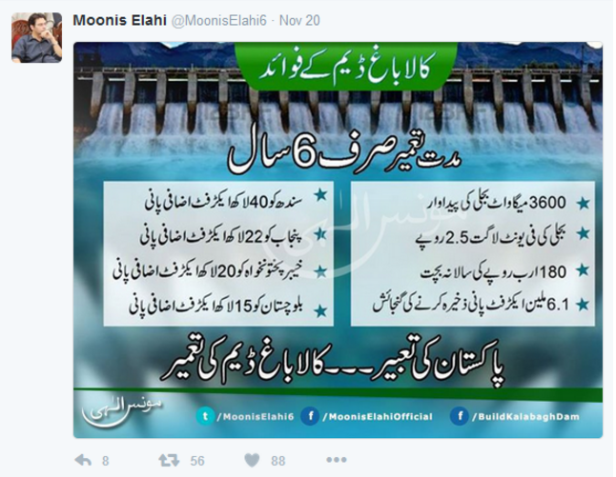
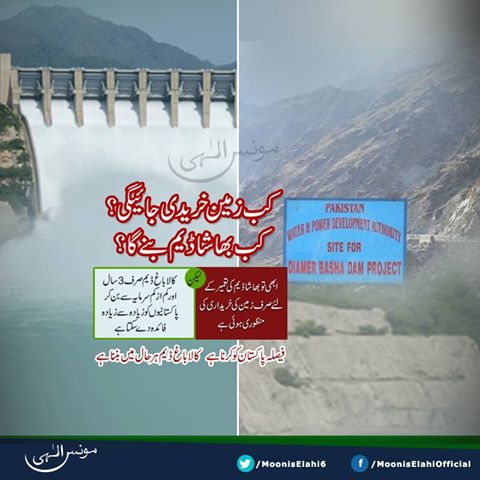
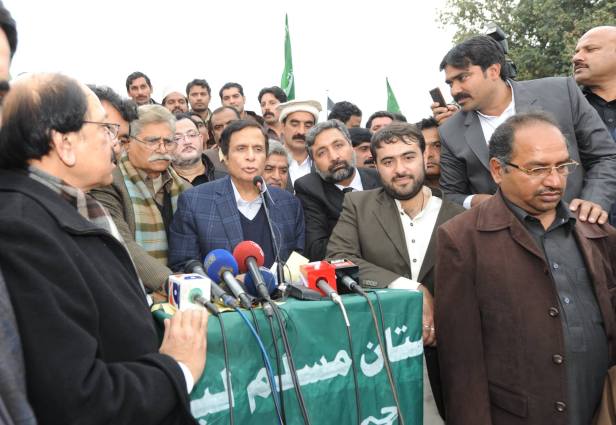 Addressing a very big quite enthusiastic Workers Convention in Gujranwala today, he said that during our tenure even poor patient was taken to the hospital on ambulance where free medicines were provided to him even injecting costing up to Rs 10 thousand was also given free, but now the patient is told to come to the hospital along with cot, bed and medicines from home. He said that there are neither beds nor medicines in the hospitals now, patients are breathing last lying on cold floor,
Addressing a very big quite enthusiastic Workers Convention in Gujranwala today, he said that during our tenure even poor patient was taken to the hospital on ambulance where free medicines were provided to him even injecting costing up to Rs 10 thousand was also given free, but now the patient is told to come to the hospital along with cot, bed and medicines from home. He said that there are neither beds nor medicines in the hospitals now, patients are breathing last lying on cold floor,  Continuing, he said that
Continuing, he said that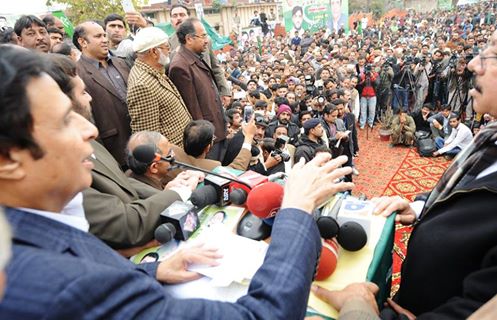 He pointedly stated that whichever scheme was started during our tenure is still functional, we were providing job opportunities to ten lakhs people every year, Shehbaz Sharif had started 9 schemes all of which have failed, Nandipur power Project, Bahawalpur Solar Power Project and Sahiwal projects all have failed, what other cities of Punjab will get from Orange Line, people do not need show off projects like jangla bus, they need medicines in hospitals and education in schools, N-League people are involved in Panama Case, all those who were mentioned in this case had resigned but they are sticking to the chair for last six months.
He pointedly stated that whichever scheme was started during our tenure is still functional, we were providing job opportunities to ten lakhs people every year, Shehbaz Sharif had started 9 schemes all of which have failed, Nandipur power Project, Bahawalpur Solar Power Project and Sahiwal projects all have failed, what other cities of Punjab will get from Orange Line, people do not need show off projects like jangla bus, they need medicines in hospitals and education in schools, N-League people are involved in Panama Case, all those who were mentioned in this case had resigned but they are sticking to the chair for last six months.
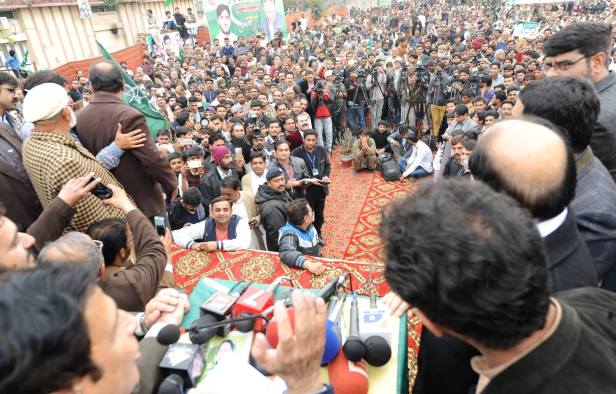 He said that we had started Sialkot-Lahore Motorway on which two foreign universities were also to be established which were shifted to India because of their incompetency, incompetent Chief Minister has put Punjab under heavy debt of Rs 2000 billion.
Paying rich tributes to active colleagues, he said that our party needs workers like Zain Ali Bhatti.
He said that we had started Sialkot-Lahore Motorway on which two foreign universities were also to be established which were shifted to India because of their incompetency, incompetent Chief Minister has put Punjab under heavy debt of Rs 2000 billion.
Paying rich tributes to active colleagues, he said that our party needs workers like Zain Ali Bhatti.
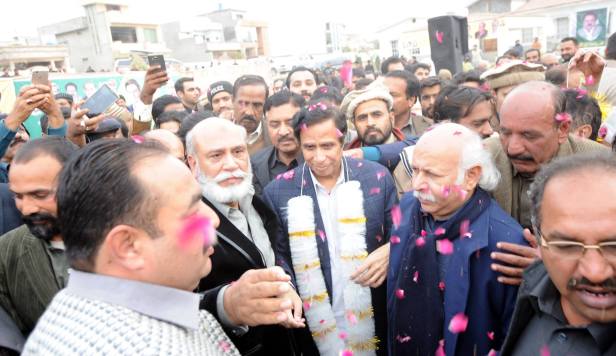 The Convention was also addressed by Tariq Bashir Cheema, Ch Zaheeruddin and Khawaja Waqarul Hassan while those seated on the stage on this occasion included Muhammad Basharat Raja, Zain Ali Bhatti, Bao Rizwan, Mian Imran Masood, Tanveer Azam Cheema, Col (R) Abbas, Hussain Elahi, Zubeida Ehsan, Irfan Ehsan, Ch Zulfiqar Pappan, Haji Shakir Mobeen, Ch Nasir Inayat Sira advocate, Engineer Shehzad Ali and other party leaders.
The Convention was also addressed by Tariq Bashir Cheema, Ch Zaheeruddin and Khawaja Waqarul Hassan while those seated on the stage on this occasion included Muhammad Basharat Raja, Zain Ali Bhatti, Bao Rizwan, Mian Imran Masood, Tanveer Azam Cheema, Col (R) Abbas, Hussain Elahi, Zubeida Ehsan, Irfan Ehsan, Ch Zulfiqar Pappan, Haji Shakir Mobeen, Ch Nasir Inayat Sira advocate, Engineer Shehzad Ali and other party leaders.
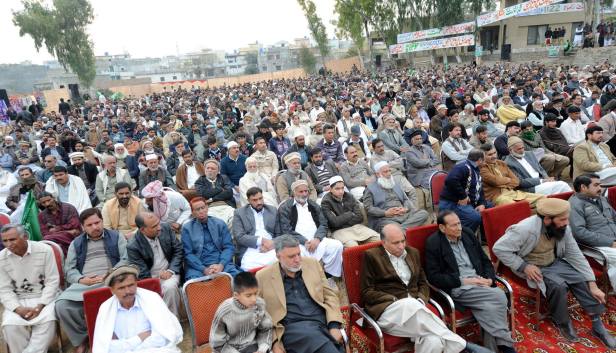 Earlier on arrival at the venue Ch Parvez Elahi was enthusiastically welcome by chanting of loud slogans and showering on flower petals. Convention participants kept raising repeatedly slogans of Ch Shujat Hussain,
Earlier on arrival at the venue Ch Parvez Elahi was enthusiastically welcome by chanting of loud slogans and showering on flower petals. Convention participants kept raising repeatedly slogans of Ch Shujat Hussain, 

